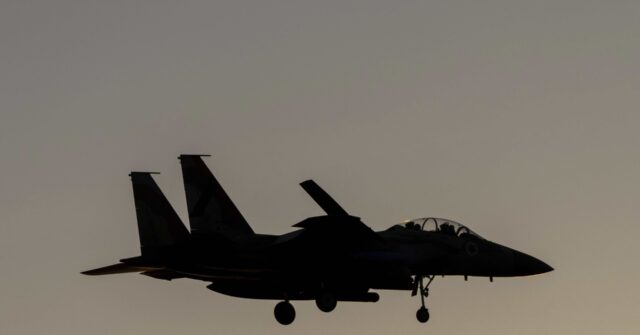On a recent Sunday, the Israeli Air Force (IAF) successfully forced an Iranian cargo plane, suspected of carrying weapons for Hezbollah, to turn back mid-flight while it was traversing Syrian airspace. The incident was reported by various media outlets, including The Times of Israel, highlighting the ongoing tensions between Israel and Iran regarding arms transfers to Hezbollah. The confrontation reflects Israel’s determined stance against the influx of Iranian weapons into Lebanon, particularly amid a fragile ceasefire that had been agreed upon by both Israel and Hezbollah.
The IAF’s interception occurred overnight, with fighter jets responding to the Iranian flight’s trajectory towards Lebanon. Upon being ordered to divert its course, the plane complied and retraced its route. This maneuver underscores Israel’s proactive measures to disrupt any potential rearmament of Hezbollah, a key adversary that Israel perceives as a terrorist threat. Despite the recent ceasefire, which aims to limit tensions and hostilities in the border region, there are fears among Israeli officials that Hezbollah may exploit this period to enhance its military capabilities with Iranian assistance.
As part of the ceasefire agreement, Lebanon, along with the Israeli government, implemented terms mandating Hezbollah’s withdrawal from areas close to the border, particularly north of the Litani River. The temporary truce’s stability remains a point of contention, especially among critics within Israel who argue that the ceasefire presents an opportunity for Hezbollah to bolster its arsenal. This skepticism reflects the broader geopolitical challenges in the region and the continuous disputes over territorial security and military preparedness.
Furthermore, the Iranian regime faced mockery from certain regional critics in light of the cargo plane’s abrupt turnaround. This response indicates a level of disdain towards Iran’s attempts to project power through arms transfers and military support to allied groups like Hezbollah. The incident served as a reminder of both the vulnerabilities and the ongoing challenges confronting Iranian regional ambitions, especially as Israel remains vigilant and resolute in its defense posture.
Simultaneously, this event illustrates the complexity of the ongoing conflict dynamics; while there is a temporary cessation of hostilities, the underlying tensions and military strategies remain palpable. The IAF’s actions convey a clear message about Israel’s willingness to safeguard its northern territories against perceived threats from Iranian-backed militias. The interception of the cargo plane signifies not only a tactical victory for Israel but also a deeper commitment to maintaining the status quo in an increasingly volatile environment.
In the broader narrative, the Israeli-Iranian conflict is characterized by an interplay of military interventions, geopolitical maneuvers, and regional alignments. The ongoing challenges in implementing ceasefires and lasting peace underscore the difficulty of achieving stability in the area, given the entrenched positions of both Israel and Hezbollah, supported by Iran. As political and military developments continue to unfold, the international community watches closely, aware that the ramifications of such confrontations extend beyond the immediate parties involved, influencing broader Middle Eastern geopolitics.

